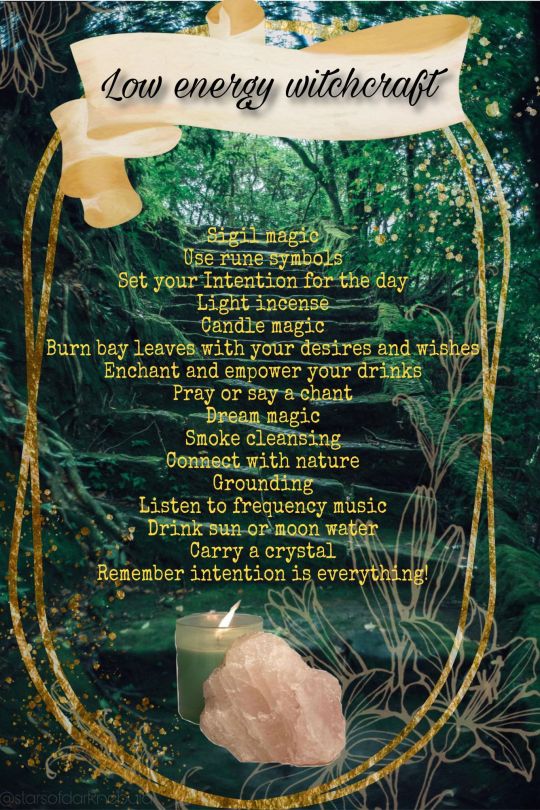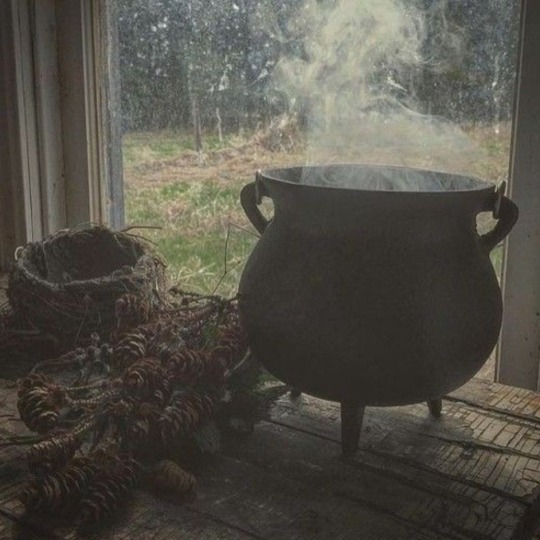🌿⛰️ Scottish/Appalachian cunning ⛰️🌿This blog supports healthy discourseThis blog does NOT support AI
Don't wanna be here? Send us removal request.
Text

Cernunnos
Illustration of the pagan god, Cernunnos. Humanoid with a deer skull holding a torc and spear with the triskele symbol framed behind him
100 notes
·
View notes
Note
Nice to meet you
Good to meet you too! 🌿
1 note
·
View note
Text
I hope Sweet Thang didn’t push the water bowl down the stairs. It would most definitely shatter
1 note
·
View note
Text

Poor Sweet Thang 😔 it’s pretty warm out today. I left a little bowl of water for him, so hopefully he stays hydrated.


I have named this squirrel Sweet Thang. He likes to sit on the small landing outside my flat because it has a little roof and easy access. Oftentimes I find him hunched like a little old shrimp of a man, with his tiny arm rested on the windowsill. Should I invite him in for some tea? He seems like good company.
(Yes, I know I need to clean the glass on the door 🥲)
#folk practitioner#folk witch#witch blog#witchcore#traditional witchcraft#green witch#witch#witches#witchcraft#witch aesthetic#witch community#witchblr#witches of tumblr#folk witchcraft#scottish witch#scottish witchcraft#scottish folk magic#appalachian folk magic#cunning folk#folk magic#appalachian witchcraft#appalachian witch#cunning woman
9 notes
·
View notes
Text


I have named this squirrel Sweet Thang. He likes to sit on the small landing outside my flat because it has a little roof and easy access. Oftentimes I find him hunched like a little old shrimp of a man, with his tiny arm rested on the windowsill. Should I invite him in for some tea? He seems like good company.
(Yes, I know I need to clean the glass on the door 🥲)
#witchblr#witchcraft#folk witchcraft#witch#witches#celtic#witchcore#witch community#witch aesthetic#green witch#folk witch#witch blog#traditional witchcraft#witches of tumblr#scottish witch#scottish witchcraft#appalachian witchcraft#appalachian witch#appalachian folk magic#scottish folk magic#cunning folk#folk magic#cunning woman#squirrel
9 notes
·
View notes
Text

Mary Nasson
York, Maine
1774
One of the few “witch graves” documented in the US.
It’s a powerful place, I can assure you.
13 notes
·
View notes
Text
Do this if this is all you can do

I also made a in-depth video on this topic, describing more things then what I could fit on this digital page :') Link
111 notes
·
View notes
Text
The Earasaid
by autumn sierra

The earasaid (also spelled erasaid, and arisaid) is a women’s plaid worn primarily between the 16th and 19th centuries. This garment was worn not only in the Highlands of Scotland, but also in surrounding areas, so to call it a tartan—or a plaid signifying a clan name—would not be accurate in all cases. In the beginning of the 1500s we can see early mentions of the earasaid’s adoption along with the (much more popular) fèileadh mòr, or belted Great Kilt, which was worn by men in the outdoors for working and travel. Gaidhlig poetry—such as John MacLean’s “De dh’ earasaid fharsaing” (1651) and John MacDonald’s poem of the Jacobite Rising (1715)—first began mentioning the women’s plaid in literature, but didn’t provide many details on the structure until the early 19th century. Since then, instructions and even diagrams have been recorded on paper on how to wear and care for the earasaid. Although its popularity has dwindled with the implementation of modern western wear, the earasaid remains a staple of women’s history in the Scottish Highlands and its surrounding areas.
Like with the Great Kilt, there are many ways to style/wear an earasaid. The simplest of these is to drape the earasaid over the shoulders and hold the wide end of the fabric about an arms length from the corners. Next, the fabric is gathered in the palms 3 to 4 times to create draped pleats before a belt is secured around the waist to hold the fabric in place. This can be worn as an overskirt, tucked overskirt, cape, or large hood. Another way to wear the earasaid is similarly to the Great Kilt. First, the fabric is laid flat on the ground with the wearer knelt at the narrower end. Leaving 6-12 inches of flat fabric, the wearer begins pleating 6 inches of fabric toward herself until there is an even amount of flat fabric left at the other narrow end. A belt is then slid gently beneath the pleated fabric. The wearer lies on top of the center of the pleats (and in the center of the belt below the fabric) so that the lines are parallel with her spine, and the lower edge lays around the knee area. The left and right sides of the fabric are wrapped around the waist and the belt is secured to hold the fabric in place. This can be worn as an overskirt, tucked over skirt, cape, hood, and pinned at the shoulder with a brooch called the penannular brooch—a metal circle with a small slit cut in to allow the passage of a long sliding pin.

Today, the earasaid isn’t as well known as its male counterpart, but there are a few organizations and individuals that display this garment’s unique beauty for those curious enough to come looking for it. These include (but aren’t limited to) USA Kilts, Kilts-n-Stuff, Fandabi Dozi’s Earasaid docuvideo, and various shops on Etsy.
https://www.scottishtartans.co.uk/Musings_on_the_arisaid_and_other_female_dress.pdf
https://clanforsythqueensland.com/wp-content/uploads/earasaid.pdf
#witchblr#witchcraft#folk witchcraft#witch#witches#celtic#witchcore#witch community#witch aesthetic#green witch#folk witch#witch blog#traditional witchcraft#witches of tumblr#scottish witch#scottish witchcraft#scottish folk magic#appalachian folk magic#cunning folk#folk magic#cunning woman#appalachian witchcraft#appalachian witch#earasaid#arisaid#erasaid#kilt#plaid
7 notes
·
View notes
Text
I’m so glad, and thank you! And I’m happy I was able to gain some new insight today as well! I haven’t had a good discussion like this in a long time 😊
This may be a hot take for paganism at this current point in time (considering most things are now accepted with nary a question) but it is impossible to “godspouse”.
There are so many people “godspousing” the same deities, I honestly think it’s just infatuation and novelty with a bit of main character syndrome and/or lack of human interaction thrown into the mix. (Could it also be TikTok/short form influence, hmm?) Tbh I think claiming “godspouse” is disrespectful to deities period. We are not the same entities.
They can be your patron/guardian, but your spouse??? 😭 is it a semantics thing that people just aren’t following??
110 notes
·
View notes
Text
Ah yes, sorry I forgot you’d mentioned the intelligence bit! Unfortunately the beloved clay pot and your sour dough starter may be stuck in single-hood then when it comes to most people’s preferences 😂
I like your activity! I’m a solitary folk practitioner, and my two friends who are interested in witchcraft are definitely new-age, but in the closet so to speak. We could potentially do this, so I’ll reach out to them about it.
This may be a hot take for paganism at this current point in time (considering most things are now accepted with nary a question) but it is impossible to “godspouse”.
There are so many people “godspousing” the same deities, I honestly think it’s just infatuation and novelty with a bit of main character syndrome and/or lack of human interaction thrown into the mix. (Could it also be TikTok/short form influence, hmm?) Tbh I think claiming “godspouse” is disrespectful to deities period. We are not the same entities.
They can be your patron/guardian, but your spouse??? 😭 is it a semantics thing that people just aren’t following??
#witchblr#witchcraft#celtic#folk witchcraft#witch#witches#witch community#witchcore#folk witch#witch blog#traditional witchcraft#green witch#witch aesthetic#witches of tumblr#scottish witch#scottish witchcraft#scottish folk magic#appalachian folk magic#cunning folk#folk magic#appalachian witchcraft#appalachian witch#cunning woman
110 notes
·
View notes














